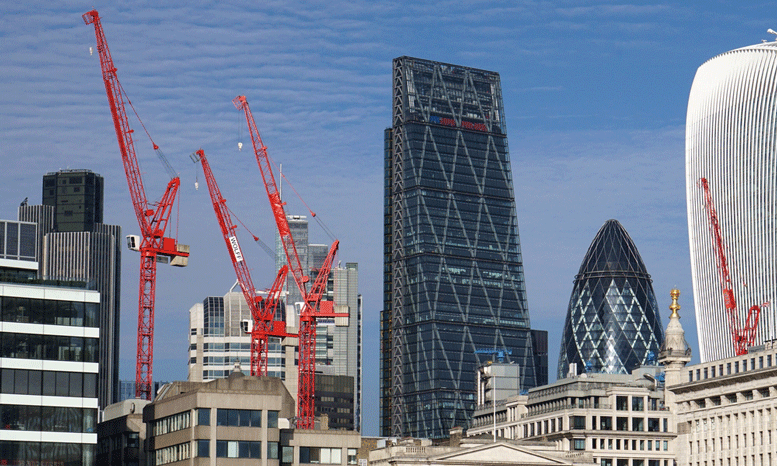UK construction ‘sees worst contraction in seven years’
Experts voice ‘serious concerns’ about construction sector following vote to leave European Union

The UK’s construction industry suffered its worst contraction in seven years in June amid concerns about the Brexit referendum, according to a survey that was mostly conducted before Britain voted on June 23 to leave the European Union.
Markit, a financial data company, said that its construction Purchasing Managers’ Index dropped to 46.0 in June from 51.2 in May – its lowest level since June 2009. The firm warned that the fall could be a sign of worse to come.
It was the first time since April 2013 that the index had slipped below the 50 level that separates contraction from expansion, Markit explained.
“This is an absolutely dire survey that fuels serious concern over the construction sector … (and) can only intensify concern as to just how much the construction sector will be hampered by the Brexit vote,” said Howard Archer, chief UK economist at IHS Global Insight, according to Reuters.
While some investors are already pulling out of commercial property deals in London, others are looking to invest in the city as the drop in the value of sterling makes the city attractive to foreign investment.
The construction industry is however likely to face cost pressures from the Brexit decision, as a number of building materials used in the UK are imported from the EU. Furthermore, a large percentage of the construction workforce consists of workers from Europe.
“The extent and speed of the downturn in the face of political and economic uncertainty is a clear warning flag for the wider post-Brexit economic outlook,” said Tim Moore, a senior economist at Markit.
“The latest figures raise the likelihood that the Bank of England will inject additional stimulus this summer in an attempt to dampen the short-term impact of Brexit uncertainty on the real economy.”
Speaking at the end of June, Mark Carney, the Bank of England governor, said he thought that the central bank would have to provide more stimulus to the British economy over the summer as it looked to recover from the shock of the ‘Leave’ vote.
House-building activity was one of the hardest hit segments of the construction industry in June, followed closely by commercial work. Civil engineering remained stable, the survey found.
Incoming work fell at its fastest rate since 2012. Markit said that 80% of the survey responses were received before June 24, which was when the result of the referendum was announced.
Construction makes up 6% of the British economy, though it accounts for a lot of volatility in official gross domestic product data, the company added.

























